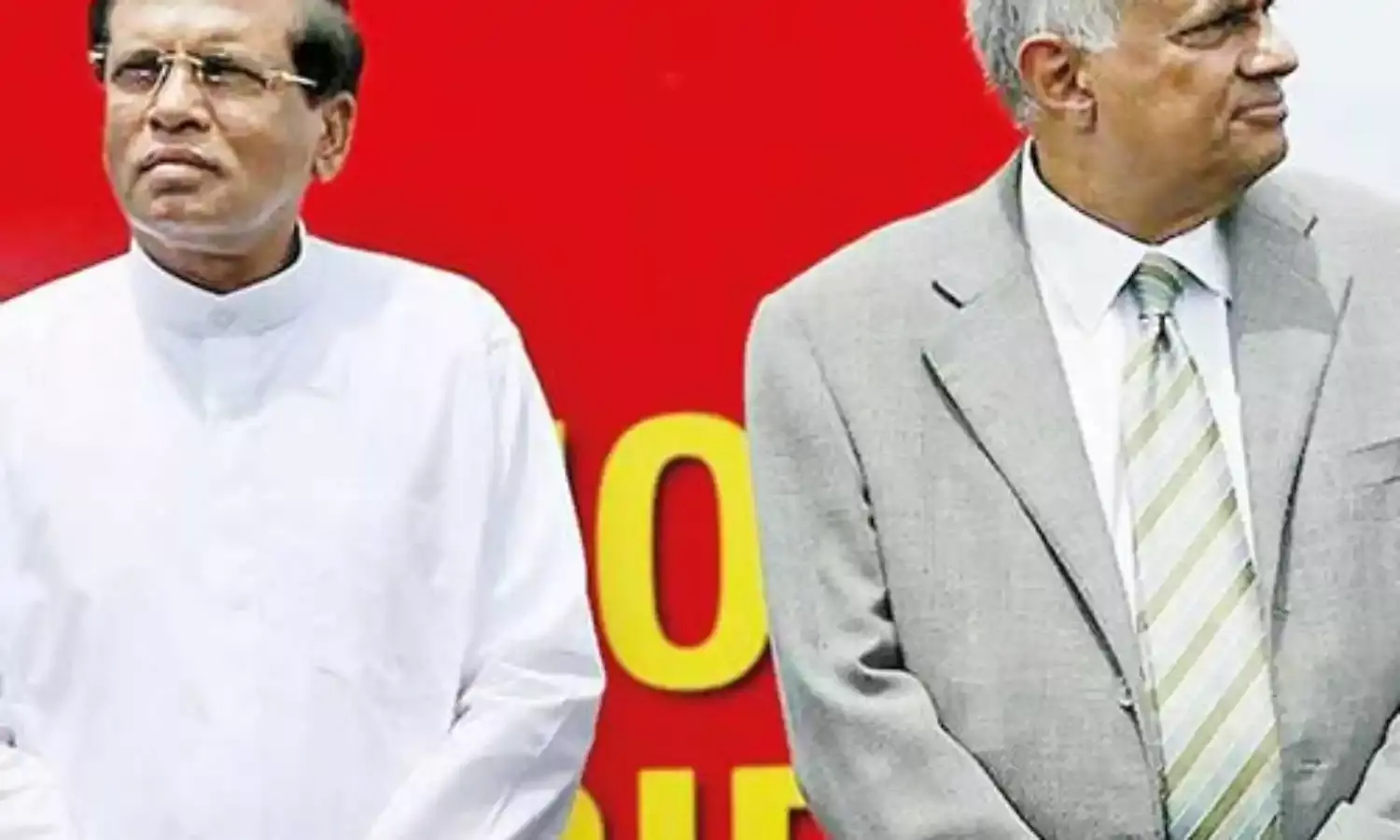Sri Lankan President And PM On Verge of Parting Ways
Wickremesinghe Asks MPs to be in Colombo April 1
COLOMBO: The Sri Lankan President, Maithripla Sirisena, and Prime Minister Ranil Wickremesinghe, appear to have decided to go their separate ways, unable to see eye to eye on most matters, especially on the electorally critical economic policy.
Given the fact that in elections, governments are judged on the basis of the goods and services they provide to the common man, the Center-Left President found the Right of Center economic policies of Prime Minister Wickremesinghe to be wanting from the electoral angle.
The results of the February 10 local bodies elections proved this, if proof was necessary. The parties in the ruling coalition (including Prime Minister Wickremesinghe’s United National Party and the President Sirisena’s Sri Lanka Freedom Party) came a cropper at the grassroots level polls.
The ruling coalition parties could not face of the populist onslaught from the fledgling Sri Lanka Podujana Peramuna (SLPP) led by former President Mahinda Rajapaksa.
Rajapaksa had formed the SLPP after splitting from the SLFP led Sirisena.
President Sirisena knew that the results of the local bodies’ elections would go the way they did, but he could little to stem the economic drift because Wickremesinghe had been made in charge of economic policy by mutual agreement ahead of the January 8, 2015 Presidential election. The UNP was thus given most of the economic ministries.
But this arrangement went awry from the world go. The Prime Minister promptly took the Central Bank and the Securities Exchange Board under his wing. And in a little over a month of assuming charge, the LKR 11.5 billion Central Bank bonds scam had taken place. An unfavorable agreement to lease out Hambantota port to China for 99 years was signed. Large sums of money were borrowed from abroad but there was no development work to justify it. The creation of one million jobs remained a pipedream.
The Prime Minister’s cabinet committee for economic management which had outsiders like Paskaralingam and Charitha Ratwatte, took decisions turning the cabinet into a mere rubber stamp.
A frustrated President then formed the National Economic Council to guide policy and oversee implementation. Three weeks back, Sirisena asked the Prime Minister to wind up the cabinet committee. But when the Prime Minister did not do it and asked for a further three weeks’ time, the President angrily declared: “I cannot run a government like this.”
Earlier, at a cabinet meeting, the President had accused the Prime Minister of plotting with the opposition to weaken him and stormed out of the cabinet room.
This week, the President took away the Central Bank from the purview of the Ministry of National Policies and Economic Affairs under the Prime Minister and returned it to the Ministry of Finance. The Security and Exchange Commission of Sri Lanka was also transferred to the Ministry of Finance. The ministry under the Prime Minister was stripped of many other departments and subjects.
It is significant that the President should do this to the Prime Minister when the latter is to face an opposition sponsored No Confidence Motion (NCM) against him on April 4.
The NCM had been submitted by the Joint Opposition (JO) led by the SLPP, and has the open or tacit support of the majority of the SLFP led by the President. The SLFP feels that it should combine with the SLPP to throw out the right wing and pro-West UNP, and form a government of their own. Or at the least, they should get rid of Wickremesinghe.
But throwing out Wickremesinghe is not easy. Sirisena asked Wickremesinghe to step down in favor of an alternative leader. But Wickremesinghe pointed out that, as per the 2015 19 th. Amendment of the constitution, the President cannot ask a Prime Minister to quit. He can be ousted only by his party MPs or through an NCM. The UNP appears to be backing Wickremesinghe, with almost all UNP MPs supporting him.
And the UNP is the single largest party in parliament with 82 members out of a total membership of 225. Combined with its allies in the United National Front (UNF), it has 106 MPs..
The UNP also has the support of the Tamil National Alliance (TNA) which has 16 MPs, and the Sri Lanka Muslim Congress having one MP.
On the other hand, even if the SLFP and the SLPP-led Joint Opposition group combine, their NCM will get only 95 votes.
However, there a danger lurking in the law. As per the law, a NCM can be passed with a majority of MPs present and voting. Therefore, Wickremesinghe will have to ensure that his party and alliance MPs attend the debate and vote .He has asked all UNP and UNF MPs to come back to Colombo on April 1.





